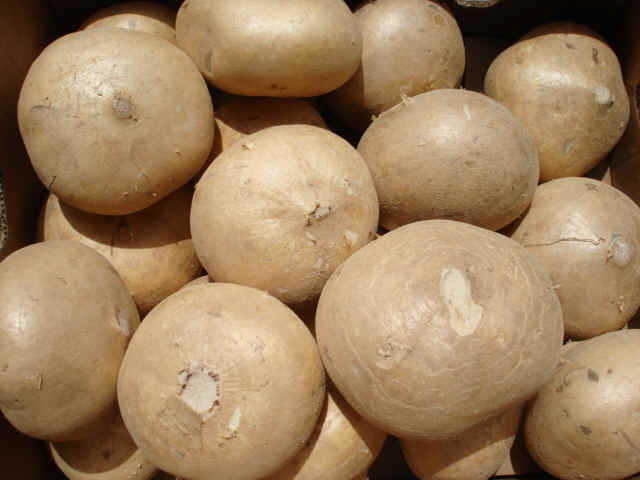First grown in South and Central America, and used in all sorts of flavorful dishes, Pachyrhizus erosus, also known as Jicama or the Mexican yam, is a delicious, sweet-tasting and crunchy food similar to a sweet potato, though without edible skin.
It is often white in color and adds a nice touch to salads if sliced and eaten raw, or it can be cooked just like a potato since it resembles a cross between those tubular roots and a turnip. Here some health benefits of jicama.
- 1. Like any fruit or vegetable, jicama is full health-boosting vitamins and minerals, including an amazingly healthful vitamin, vitamin C. Because of its high vitamin C content, jicama is great for boosting the immune system, supporting eye and skin health, and helping with anti-inflammatory action in the body to reduce everything from arthritis to a stuffy nose and watery eyes. Vitamin C could even be the answer to heart disease prevention.
- 2. Jicama has very low sodium and hardly any fat (around .01% of polyunsaturated fat per one medium size jicama root) so they support heart health and maintenance of a healthy weight.
- 3. Due to containing low calories and being high in fiber, the root is a great tool for weight loss.
- 4. The soluble fiber in jicama is excellent for lowering cholesterol as well. It also helps to stabilize blood sugar levels and boosts digestive health.
- 5. One small jicama root contains about 4 milligrams of iron – that amounts to about 22% of the daily recommended allowance. Iron is responsible for making sure our red blood cells have enough oxygen, and helps to boost our energy levels.
- 6. Jicama is full or potassium (around 989 milligrams for one medium root), calcium and magnesium – all important trace minerals for our sustained health.
- 7. Jicama contains vitamin B-6, the vitamin that supports healthy brain functioning, and helps our body to break down protein into usable energy. B-6 also supports nerve functioning, helps to form red blood cells, and helps to synthesize antibodies that fight foreign viruses and bacteria in our body.
Source: NaturalSociety









